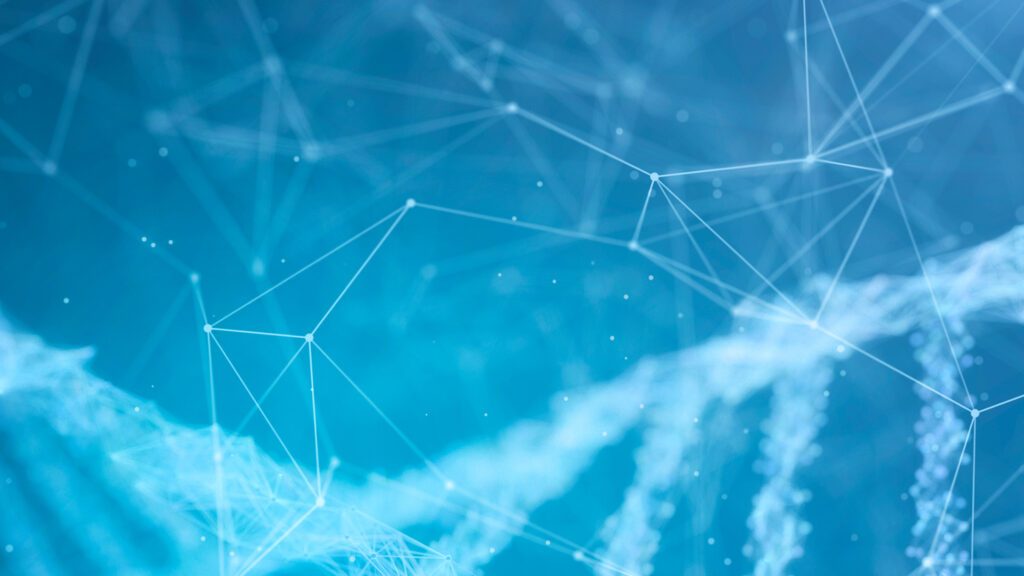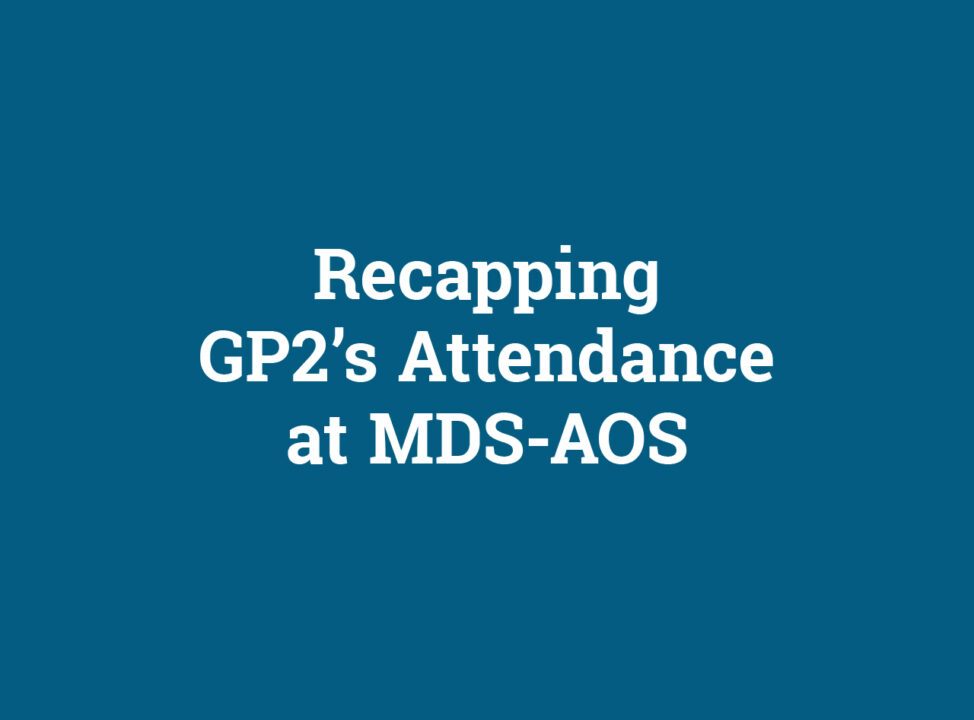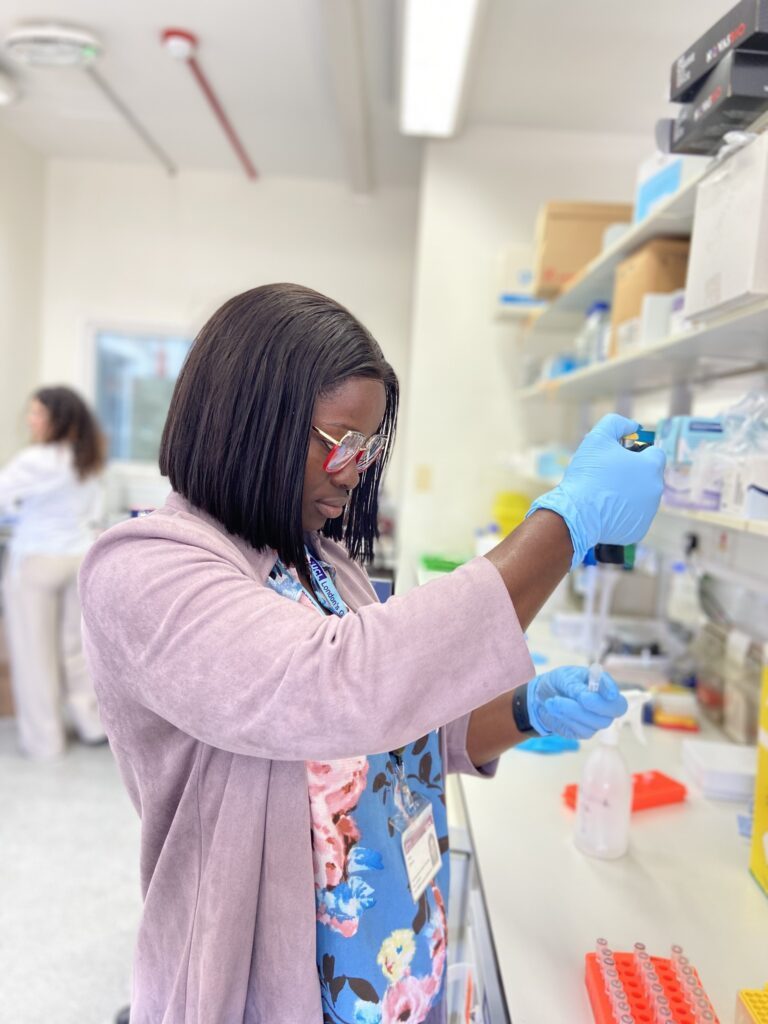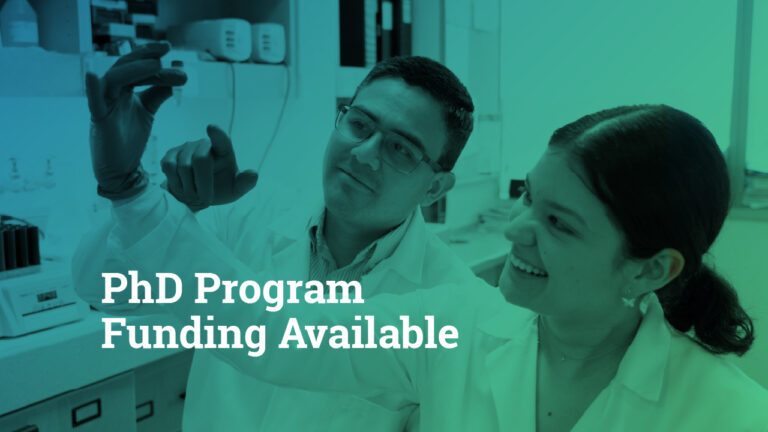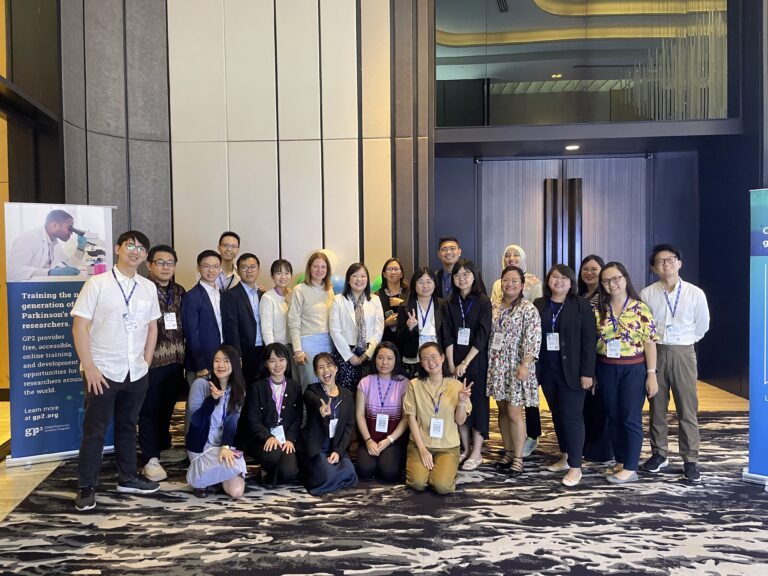A team of GP2 trainees from Asia recently attended the MDS-AOS Basic Science School: Translational Neurogenetics with Focus on Movement Disorders in Manila, Philippines on April 13-14, 2023. The aim of the course was to create a common language and generate ideas that will allow the development of translational research projects amongst the next generation of scientists and young clinicians interested in the recent advances of clinical and preclinical disciplines in Parkinson’s disease (PD) and movement disorders.
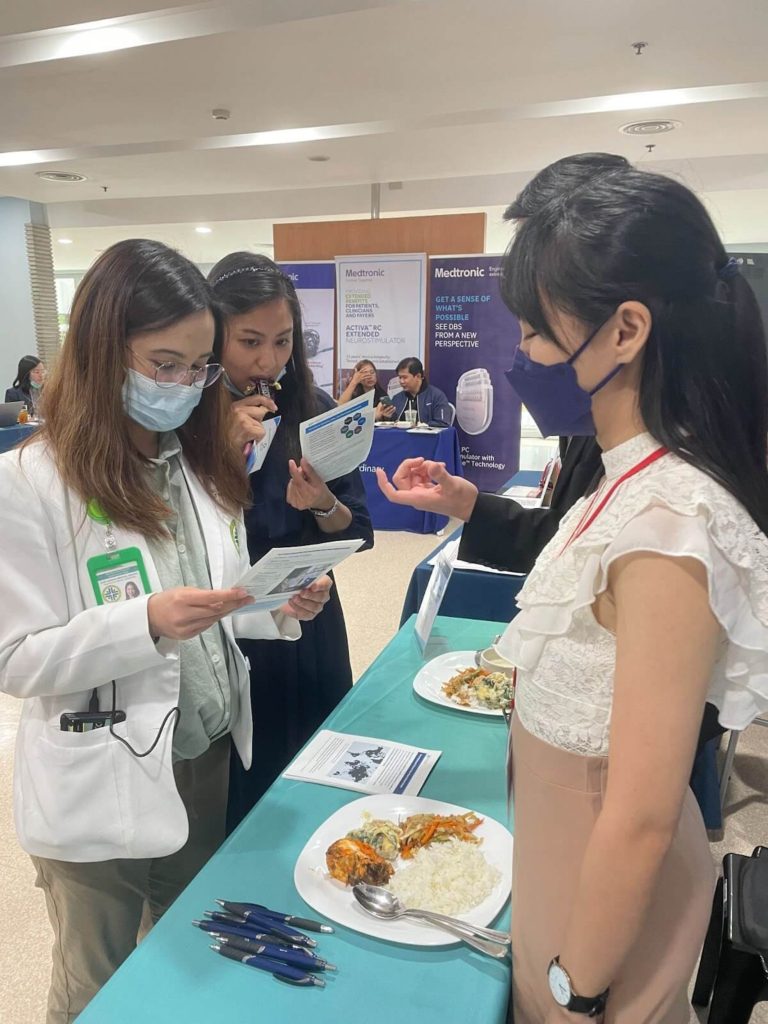 The event provided updates on hot topics in the field of PD research. These included discussions on the gut microbiome, the role of alpha-synuclein in PD pathology and its relevance as a target therapy for PD treatment, and a wide array of topics related to the genetics of PD and other movement disorders. Additionally, there were several lectures focused on genetic testing and counseling in clinical practice. The intimate setting allowed for a more rigorous dissection of every topic and for active participation in the training sessions.
The event provided updates on hot topics in the field of PD research. These included discussions on the gut microbiome, the role of alpha-synuclein in PD pathology and its relevance as a target therapy for PD treatment, and a wide array of topics related to the genetics of PD and other movement disorders. Additionally, there were several lectures focused on genetic testing and counseling in clinical practice. The intimate setting allowed for a more rigorous dissection of every topic and for active participation in the training sessions.
In a sense, this event challenged our existing framework of PD. Firstly, there was a call for a paradigm shift in understanding PD not as a single entity, but rather as a heterogeneous neurodegenerative disorder with many different phenotypes, patterns of progression, and outcomes, substantially driven by genetics. Another theme of the course focused on the concept of penetrance and how, in some instances, heterozygous mutations in “classically recessive” genes appear to act as a risk factor for the development of a certain disease. This emphasizes the importance of elucidating mechanisms of endogenous disease protection, work that requires the generation of large amounts of data. Finally, in order to make any sort of substantial progress in tackling movement disorders, there needs to be more collaboration, both regionally and globally. Data from traditionally under-represented regions such as those in South-East Asia are invaluable to these global efforts.
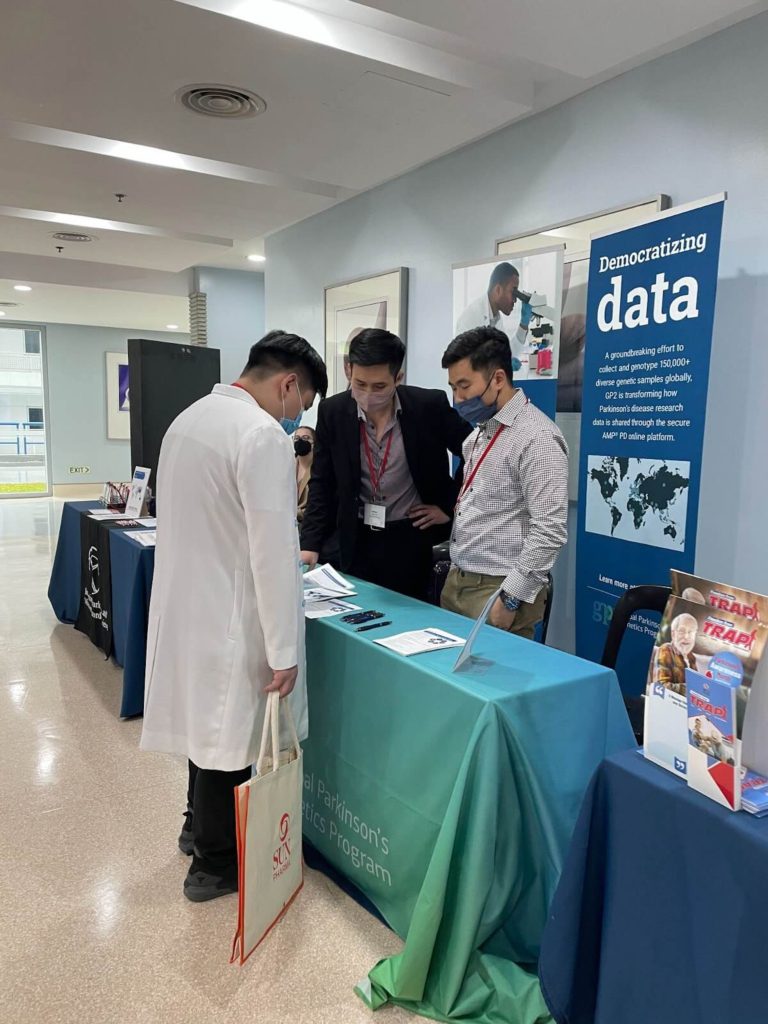 There was time for discussion after each talk and these interactions revealed that most of our colleagues from the region encounter similar struggles when it comes to incorporating neurogenetics in clinical practice, the access to genetic testing is often limited by finances and logistics in South-East Asia. Furthermore, most of us are beginning to establish a cohort of patients within our own communities but we do not readily possess the technical knowledge of how to do this effectively and collaboratively. It was somehow fulfilling to be able to strategize on how we could overcome these hurdles together. One of the best strategies we agreed upon was to utilize the support and opportunities provided by the GP2 initiative.
There was time for discussion after each talk and these interactions revealed that most of our colleagues from the region encounter similar struggles when it comes to incorporating neurogenetics in clinical practice, the access to genetic testing is often limited by finances and logistics in South-East Asia. Furthermore, most of us are beginning to establish a cohort of patients within our own communities but we do not readily possess the technical knowledge of how to do this effectively and collaboratively. It was somehow fulfilling to be able to strategize on how we could overcome these hurdles together. One of the best strategies we agreed upon was to utilize the support and opportunities provided by the GP2 initiative.
We set up a booth at the venue entrance to introduce and encourage clinicians and scientists to collaborate with GP2. Our interactions were positive and productive, and some attendees even approached our GP2 collaborators to discuss the possibility of including their cohorts in the GP2 effort. GP2 is committed to expanding the understanding of the genetics of PD, not only by establishing global partnerships and democratizing data but also by supporting career development of young clinicians and scientists who work with underrepresented populations.
In summary, the MDS-AOS Basic Science School course was an engaging event that contributed to seeing the bigger picture of movement disorders, the nature of the field, and its future direction. Additionally, the presence of GP2 provided the resources to facilitate networking, future collaboration, and the advancement of PD research.
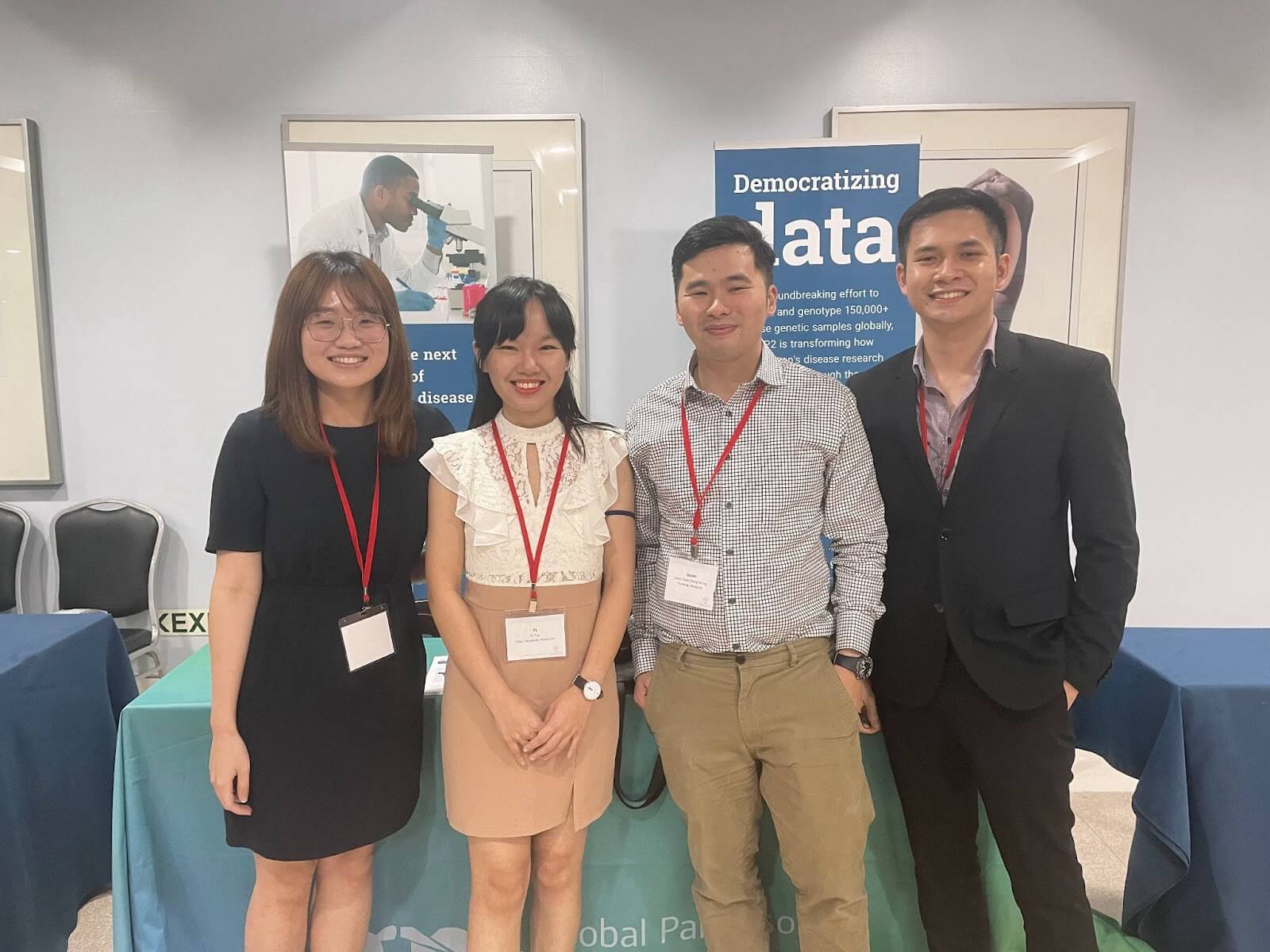
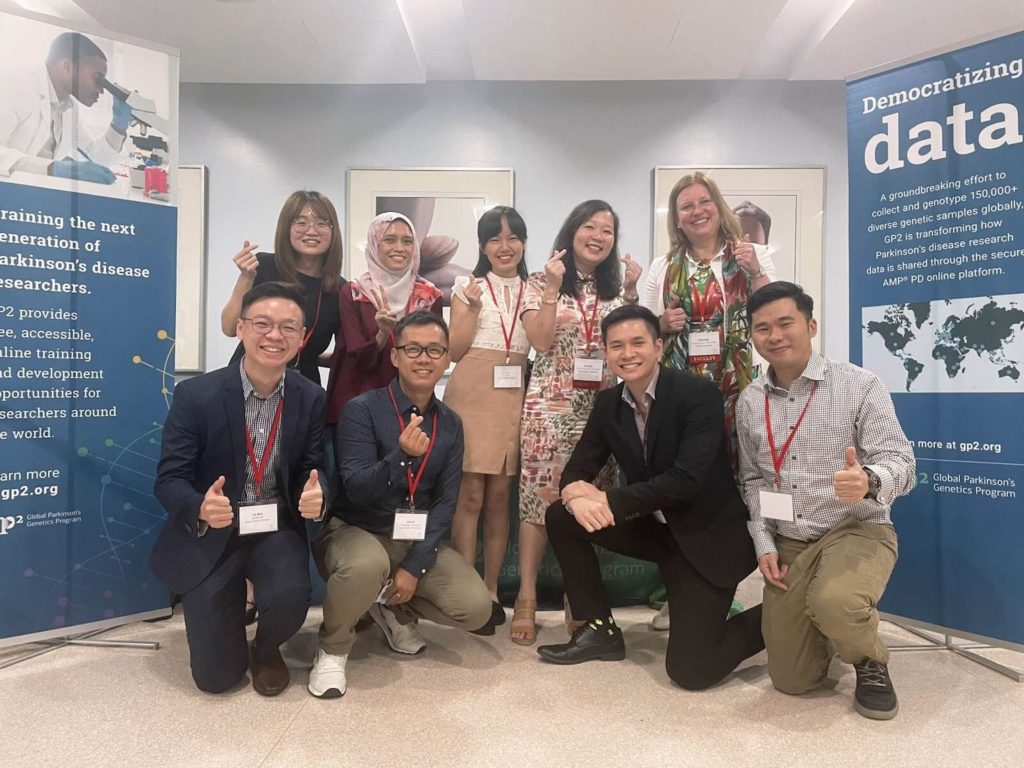
GP2 is continually offering opportunities for the research community to learn more about Parkinson’s disease genetics research. Check out our upcoming opportunities or take advantage of our training courses which have subtitles available in up to 100 languages!
